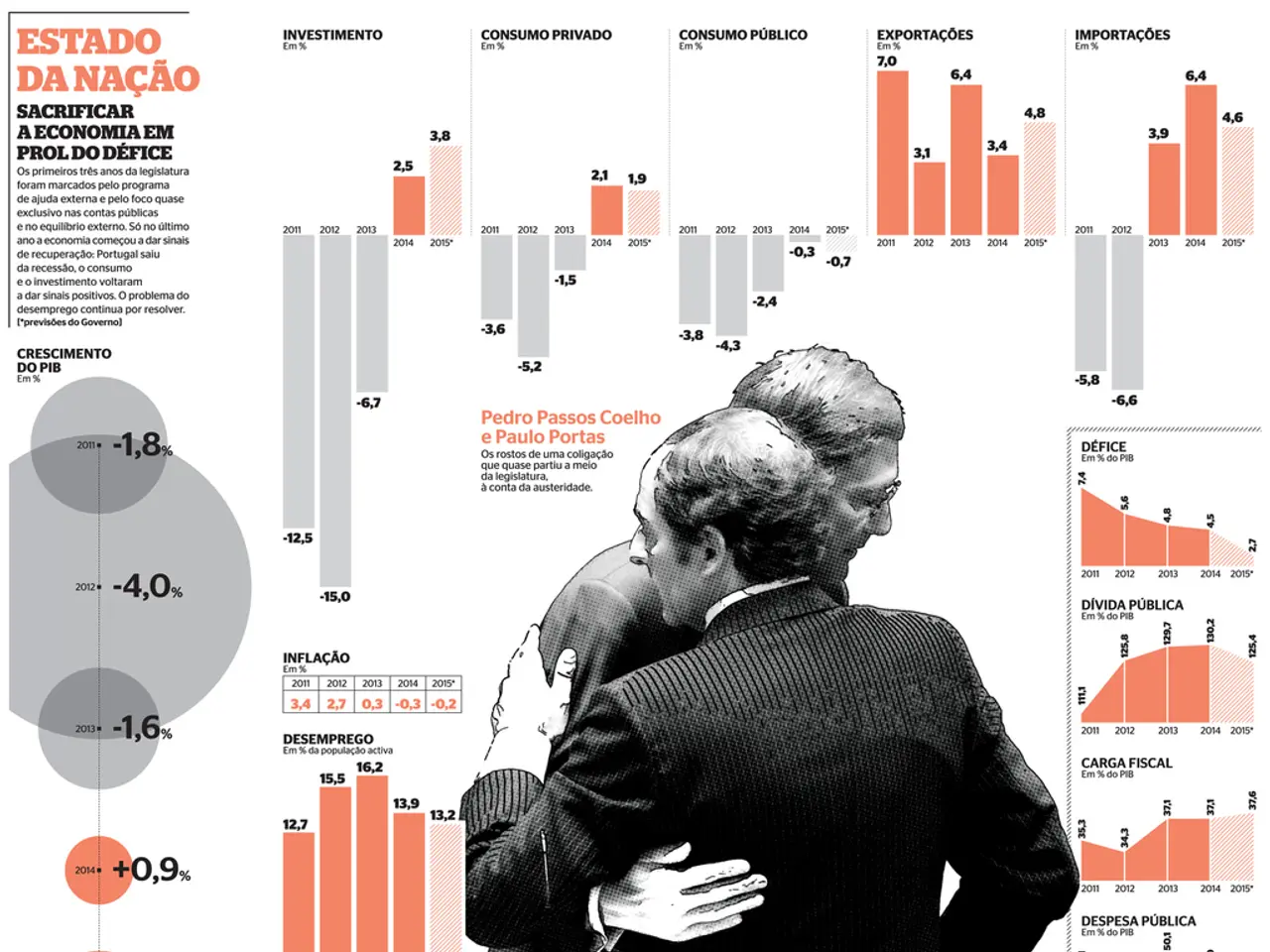Disconnected Connection: Experiencing Loneliness When Core Values and Preferences Clash
In romantic relationships, emotional disconnect can have lasting consequences, cracking the foundation of the bond. This disconnect often manifests as an unspoken gap when values and interests no longer align, leading to a lack of shared conversation topics and quiet moments.
However, reconnecting with someone when values and interests diverge requires effort from both sides. It involves open communication, understanding, and a willingness to find common ground. Differences in interests can make it difficult to connect on a deeper level, leading to tension and frustration.
Values are deeply personal and govern how we make decisions, what we prioritize, and interpret events. Acknowledging the grief and giving oneself permission to feel it is crucial when managing the emotional toll of growing apart from friends or family.
Effective strategies for coping with emotional distance in relationships include intentional communication, patience with gradual reconnection, practicing empathy, and seeking professional support.
One approach is to take intentional small steps for connection. Sharing feelings daily or engaging in gentle, shared activities can foster closeness incrementally. Mindfulness and emotional regulation techniques, such as meditation, deep breathing, and body scans, increase self-awareness, helping partners observe their feelings without judgment and respond calmly rather than reactively.
Communicating without blame is another key strategy. Expressing needs clearly while avoiding accusations promotes better dialogue. Approaching conversations with compassion and understanding emotional distance as a protective mechanism rather than rejection fosters an environment conducive to constructive dialogue.
Empathy and respect for value differences are also essential. Acknowledging your partner’s perspective, even when values differ, reduces conflict and emotional friction. Constructive communication and mutual respect create space for healing and connection despite mismatches.
Taking emotional timeouts during conflict can also be beneficial. Pausing conversations when emotions escalate allows both partners to cool down and return with a clearer, calmer mindset to resolve issues constructively.
Professional help, such as couples or individual therapy, can address underlying issues such as trauma or emotional coping styles, guiding personalized coping strategies and fostering vulnerability and reconnection. Building supportive networks and reflection, through sharing feelings with trusted friends or journaling, helps process emotions and clarify needs, supporting resilience in the relationship.
It's possible to build meaningful connections with people who don't share all your interests or values, as long as mutual respect and understanding are present. Personal growth can help redefine what it means to feel connected, as mutual respect, understanding, and the willingness to support each other can sometimes outweigh the need for similarity in every aspect.
Differences in values and interests can create emotional distance and isolation, especially in relationships. If conversations are becoming increasingly strained or superficial, or if you feel emotionally disconnected, it's a sign that your values or interests may no longer align with those around you. Sometimes it may be necessary to accept that some relationships have run their course.
Fear of growing apart can lead to holding onto relationships out of nostalgia, fear of being alone, or a desire to maintain some semblance of connection, even if it no longer feels fulfilling. Seeking out new communities, either in person or online, can provide opportunities to connect with like-minded individuals. Finding new connections can help overcome feelings of loneliness, especially when previous bonds begin to fray.
[1] Gottman, J. M., & Silver, N. (1999). The Seven Principles for Making Marriage Work: A Practical Guide from the Country's Foremost Relationship Expert. Simon and Schuster. [2] Johnson, S. M. (2004). Hold Me Tight: Seven Conversations for a Lifetime of Love. Little, Brown Spark. [3] Schnarch, D. M. (2009). Passionate Marriage: Keeping Love and Intimacy Alive in Committed Relationships. ReganBooks. [4] Johnson, S. M. (2010). After the Affair: Healing the Pain and Rebuilding Trust When a Partner Has Been Unfaithful. Little, Brown Spark. [5] Gottman, J. M., & Levenson, R. W. (2011). The Relationship Cure: A 5 Step Guide to Strengthening Your Marriage, Family, and Friendships. Harmony Books.
Read also:
- Setting Up and Expanding Operations at a Soil Blending Facility
- Surveying the Scene: Legality, Drones, and American Anti-Terror Strategy
- Regional University's healthcare system strengthened through collaborative partnership with Chancellor Dr Fiona Hill
- Deteriorating brutality in the restaurant industry persists





